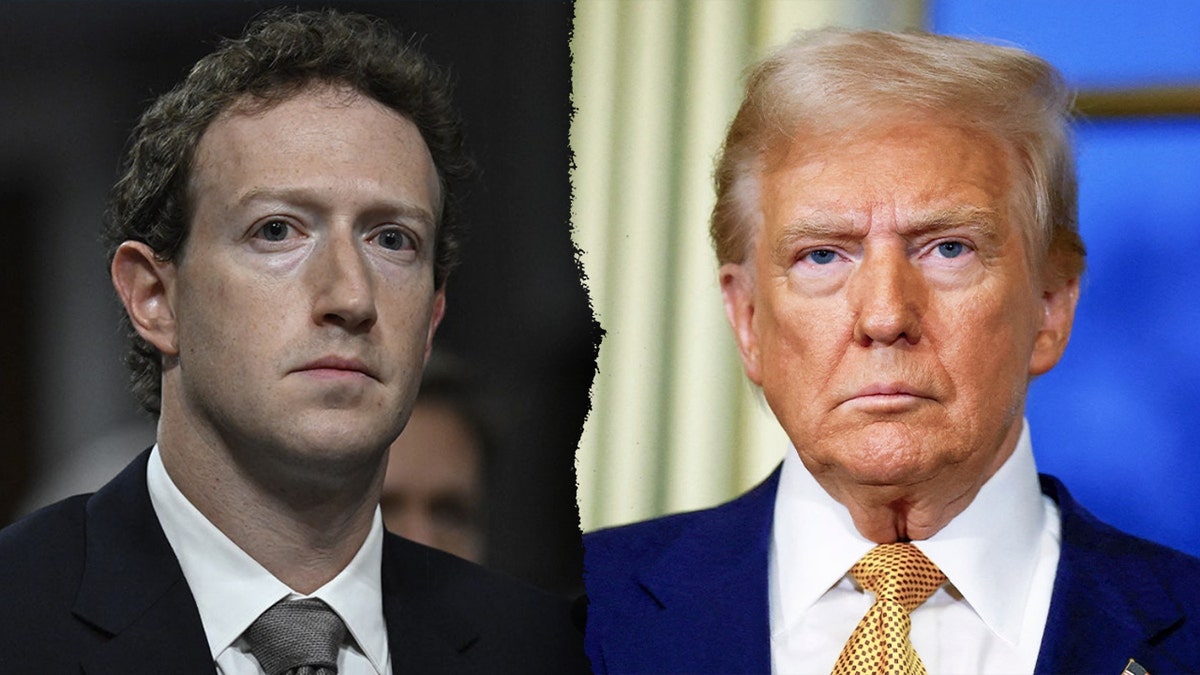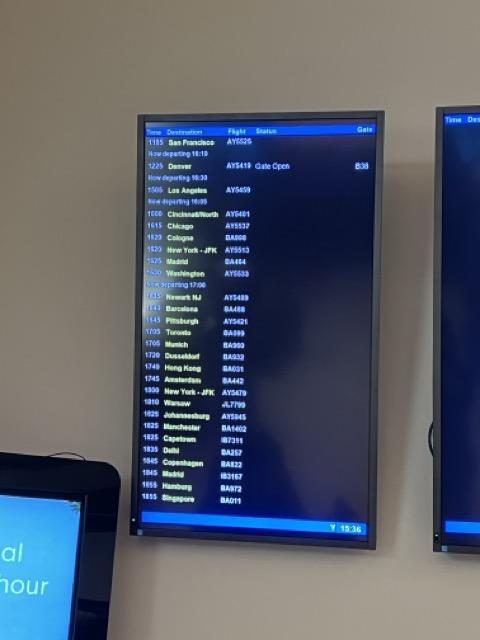Meta's Zuckerberg And The Trump Administration: A New Era

Table of Contents
The 2016 Election and its Aftermath: A Turning Point for Meta
The 2016 US Presidential election served as a watershed moment, exposing the vulnerability of social media platforms like Facebook (now Meta) to manipulation and misuse. The election highlighted the platform's role in the spread of misinformation, foreign interference, and the amplification of divisive narratives. Controversies surrounding Russian interference, particularly through the Internet Research Agency's sophisticated disinformation campaigns, cast a long shadow over Meta's operations. These campaigns utilized targeted political advertising and fake news articles to sow discord and influence public opinion.
- Cambridge Analytica scandal: The harvesting of millions of Facebook user data by Cambridge Analytica, a political consulting firm, further eroded public trust in Meta's data security practices and sparked global calls for greater regulation.
- Increased scrutiny on data privacy and user security: The 2016 election and subsequent revelations led to increased government scrutiny of Meta's data handling practices and heightened public awareness of privacy concerns.
- Early responses from Meta to criticisms: Initially, Meta's responses to these criticisms were met with skepticism, further fueling calls for greater transparency and accountability. The company faced mounting pressure to implement stronger measures to combat misinformation and protect user data.
The Trump Administration's Approach to Tech Regulation
The Trump administration adopted a largely skeptical, and at times confrontational, stance towards big tech companies, including Meta. This approach was characterized by a mixture of rhetoric, investigations, and policy proposals aimed at curbing the power and influence of these tech giants. A central point of contention was Section 230 of the Communications Decency Act, which shielded online platforms from liability for content posted by their users. The Trump administration repeatedly threatened to repeal or significantly alter Section 230, arguing that it allowed social media companies to censor conservative voices.
- Key figures and their influence: Figures like Ajit Pai, chairman of the Federal Communications Commission (FCC), played a significant role in shaping the administration's approach to tech regulation.
- Investigations and hearings concerning anti-competitive practices: The administration launched several investigations into potential anti-competitive practices by large tech companies, including Meta.
- Accusations of bias against conservative voices: A recurring theme throughout the Trump administration was the accusation that social media platforms, including Meta, exhibited bias against conservative viewpoints and voices.
Meta's Response and Adaptations Under Pressure
Faced with intense scrutiny from the Trump administration and growing public concern, Meta implemented several strategies to mitigate risks and address the challenges. These included significant investments in content moderation and fact-checking initiatives, alongside changes to its advertising policies. The company also engaged in substantial lobbying efforts to influence policy decisions and shape the regulatory landscape.
- Changes in advertising policies and political ad transparency: Meta introduced stricter rules regarding political advertising, aiming to enhance transparency and accountability in political campaigns conducted on its platform.
- Increased efforts to combat misinformation and fake news: The company invested heavily in technology and human resources to detect and remove fake news and other forms of misinformation.
- Strategic lobbying efforts by Meta: Meta engaged in extensive lobbying activities to influence the legislative and regulatory processes, attempting to shape the outcome of debates surrounding Section 230 and other relevant policies.
The Lasting Legacy: Shaping the Future of Tech and Politics
The relationship between Meta's Zuckerberg and the Trump administration left an enduring mark on the tech industry and the political landscape. The controversies surrounding the 2016 election and the subsequent regulatory pressures spurred increased bipartisan support for tech regulation, prompting ongoing debates about social media's role in political campaigns and the balance between free speech and platform accountability.
- Increased bipartisan support for tech regulation: The events of the Zuckerberg-Trump era fostered a broader consensus across the political spectrum about the need for greater regulation of social media platforms.
- The evolving role of social media in political campaigns: The impact of social media on political campaigns has undergone significant scrutiny, leading to debates about the ethical use of data, targeted advertising, and the spread of misinformation.
- The lasting impact on user trust and platform accountability: The challenges faced by Meta during this period underscored the importance of user trust and platform accountability, influencing the ongoing discussion about responsible content moderation and data privacy.
Conclusion: Understanding the Zuckerberg-Trump Era and its Implications
The relationship between Meta's Zuckerberg and the Trump administration represents a pivotal chapter in the history of tech regulation. The 2016 election exposed vulnerabilities in social media platforms, sparking controversies around misinformation, foreign interference, and data privacy. The Trump administration's approach, marked by skepticism towards big tech and threats to Section 230, forced Meta to adapt and invest heavily in content moderation and transparency initiatives. The lasting legacy of this era is the increased bipartisan support for tech regulation and an ongoing debate about the balance between free speech, platform accountability, and the role of social media in politics. To further understand the complexities of the Zuckerberg-Trump era and its implications for the future of tech and politics, explore resources like reports from the Senate Intelligence Committee and academic studies on social media regulation and misinformation. Engage in online discussions about the impact of the Trump administration on Meta and contribute your insights to this critical conversation.

Featured Posts
-
 L Ancienne Miss Meteo Et Eric Antoine Un Couple Discret A La Premiere Parisienne
May 11, 2025
L Ancienne Miss Meteo Et Eric Antoine Un Couple Discret A La Premiere Parisienne
May 11, 2025 -
 Newark Airports Ongoing Tech Issues Cause Widespread Flight Disruptions
May 11, 2025
Newark Airports Ongoing Tech Issues Cause Widespread Flight Disruptions
May 11, 2025 -
 Bank Of Canada Rate Cuts Economists Predict Renewed Cuts Amidst Tariff Job Losses
May 11, 2025
Bank Of Canada Rate Cuts Economists Predict Renewed Cuts Amidst Tariff Job Losses
May 11, 2025 -
 Mackenzie Mc Kees Pregnancy Announcement A New Baby With Khesanio Hall
May 11, 2025
Mackenzie Mc Kees Pregnancy Announcement A New Baby With Khesanio Hall
May 11, 2025 -
 The Challenge 41 Spoilers Shocking Elimination Of Fan Favorite
May 11, 2025
The Challenge 41 Spoilers Shocking Elimination Of Fan Favorite
May 11, 2025
